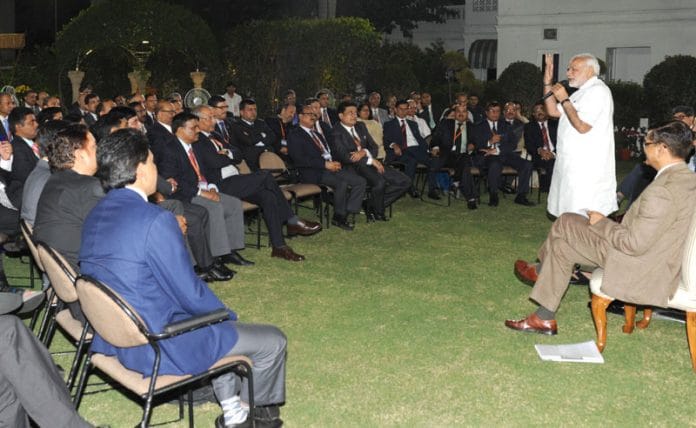Niti Aayog recommends civil services recruits be placed in a ‘central talent pool’ before being allocated positions on the basis of their talent.
New Delhi: In a bid to reform the Indian bureaucracy, the Niti Aayog Wednesday recommended that recruits into the civil services be placed in a “central talent pool”, after which candidates can be allocated positions in the government.
The recommendation, if accepted, would mark a significant shift from existing practice where officers, once selected, are allocated services on the basis of the rank they secure in the civil service examination.
“The idea is that we create a large pool of candidates, and then allocate services to them on the basis of their talents, what they have studied, their expertise, etc.,” a senior NITI Aayog official told ThePrint on condition of anonymity.
“For example, someone who has studied science can go to the forest service, someone else can go into administration, and so on,” said the official.
While the official said the proposal is “just an idea,” and details will be finalised if it is acceptable to the government, the allocation will be done by the Union Public Service Commission (UPSC), and not by the government.
“The message that one is getting through all these proposals and ideas is that the government does not want generalists anymore,” an IFS officer said on condition of anonymity. “This government especially, is looking for as many ways to bring in domain experts as possible.”
It has been a long-standing criticism against the civil services, especially the IAS, that the decision-making in specialised areas of governance is restricted in the hands of “generalists” who may have little expertise in the area they make policies for.
Niti Aayog’s recommendation, in its ‘Strategy for New India @75’ document, comes months after the Narendra Modi government sought to bring in “domain experts” into the government at the position of joint secretaries through lateral entry.
Also read: Why Niti Aayog’s suggestion to cut IAS, IPS entry age limit is unlikely to make headway
‘Align interests’
According to current practice, the UPSC recommends a merit list of candidates to the government, and the allocation of service is done by the Department of Personnel and Training (DoPT) on the basis of ranks of all the candidates, thus making service allocation an objectively carried out exercise.
“The idea is to align people’s interests and expertise with the service and post they occupy in the government,” the official said.
“Recruits should be placed in a central talent pool, which would then allocate candidates by matching their competencies and the job description of the post,” said the document.
Rationalisation
Niti Aayog has further suggested that the existing 60-plus separate civil services at the central and state level be reduced through rationalisation and harmonisation of services, and the number of exams for civil services be brought down to one with an all-India ranking.
“If services are not allocated on the basis of ranks, how else will such large data be made sense of, and services be allocated without any standardised procedure?” asked another officer on condition of anonymity.
“I have done engineering, but my interest may lie in administration. How will the government decide what service I should get on the basis of what I have studied?” asked the officer.
Retired IAS officer Anil Swarup agreed. “For me, it is not that important if such a reform is brought about. As long as UPSC is doing it, it is okay. But the government should not have a say in who is getting what service,” he said.
Swarup also questioned the basis of Niti Aayog making such a proposal.
“If they are talking about domain expertise, one should ask what expertise the Niti Aayog has to making proposals on anything and everything?”
The Niti Aayog has also suggested that the upper age limit for entry into the civil services be brought down to 27 years from the current 30 years for general category candidates in a phased manner by 2022-23.
“The idea is to bring in people into the services early on, so that they can stay in government for longer,” added the Niti Aayog official.
Also read: Midnight orders and hurried transfers: Where Modi govt is going wrong with IAS officers







Ronen Sen
Niti Aayog is going all over the place. Rosen Sen had a phrase for it, which got him into trouble.